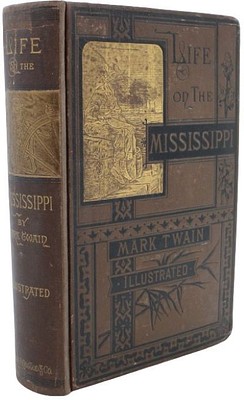Charleston, Azaleas & Old Bricks, Bayard Wootten
About Seller
522 South Pineapple Avenue
Sarasota, FL 34236
United States
Sarasota Estate Auction specializes in a wide variety of furniture, antiques, fine art, lighting, sculptures, and collectibles. Andrew Ford, owner and operator of the company, has a passion for finding the best pieces of art and antiques and sharing those finds with the Gulf Coast of Florida.
Two ways to bid:
- Leave a max absentee bid and the platform will bid on your behalf up to your maximum bid during the live auction.
- Bid live during the auction and your bids will be submitted real-time to the auctioneer.
Bid Increments
| Price | Bid Increment |
|---|---|
| $0 | $10 |
| $100 | $25 |
| $250 | $50 |
| $1,000 | $100 |
| $2,500 | $250 |
| $7,500 | $500 |
| $20,000 | $1,000 |
| $50,000 | $2,500 |
| $100,000 | $5,000 |
| $250,000 | $10,000 |
About Auction
Aug 5, 2023
Featuring a Lifetime Collection of Early American Pottery, a Fantastic Georg Jensen Sterling Tea Set - 23 OZT, Important Books and Ephemera, and Exquisite Estate Jewelry. Also including art from artists including Roy Lichtenstein, Camille Pissarro, Karel Appel, Victor Vasarely, and many more. Sarasota Estate Auction sarasotaestateauction@gmail.com
- Lot Description
Charleston, Azaleas & Old Bricks, Bayard Wootten 1937 Charleston, Azaleas And Old Bricks, Photographs by Bayard Wootten, Text by Samuel Gaillard Stoney, Houghton Mifflin Company, Boston, The Riverside Press Cambridge 1937, a limited and numbered edition signed by Bayard Wootten, who took the photographs, and Samuel G. Stoney, who wrote the text; this is number 300 of one thousand and thirty copies, with a date of 1937 on the copyright page, which makes this a first edition as well (there is just a single date on the title page and copyright page, and both match, so this is a first edition, according to Bill McBride). With green boards and a brown paper label on the spine, white endpapers, a half title, a frontis photograph of the front stair of Governor Thomas Bennett’s House on Lucas Street, a page dedicated to Fant Hill Thornley, two pages of Contents, which lists all the Plates (61), a twenty-five page introduction, followed by the plates and a description for each plate. The book is a fascinating history of Charleston through photographs with beautiful plates by Mary Bayard Morgan Wooten (1875–1959), a pioneering American photographer and artist. Born in New Bern, North Carolina, a small town on the coast of North Carolina, she married Charles Wootten, who abandoned her for the Gold Rush. So in 1897 she returned to New Bern to support her two sons by painting flowers on china and fine dresses. In 1902, she designed the original logo for Pepsi Cola, the soft drink created by her neighbor, Caleb Bradham. In 1903 she opened her own photography studio in a shack next to her home on East Front Street in New Bern and later on she opened a second studio at Camp Bragg, and she is believed to have been the first woman to make aerial photographs. This occurred in 1914; while she was flying in a Wright Brothers plane, she took views of New Bern and its surroundings. Bayard Wootten purchased her first automobile in 1918 and traveled the state taking photographs of scenery and daily life in rural areas. For portraits, she selected her sitters’ own environments, rather than the usual staid studio setting. In 1928, she opened a studio in Chapel Hill, and her photography grew to include commissions for various books. She collaborated with Samuel Gaillard Stoney on this volume, Charleston: Azalea and Old Bricks; her silver gelatin images with their deep shadows and soft light complemented the cities famed architecture and vegetation. The book was issued without a dust jacket; it is 4to. and measures 12 5/8 x 9 7/8 in. wide, with a tight binding, the owner’s name inscribed in pencil on the front free paste-down - it looks like “R Eugene Ashley” - and light browning along the front and back gutters and light soiling on the spine. The spine label is a bit faded and there is light wear on the heel and crown of the spine; the black-and-white plates are very clean, and so is the text. Eugene Ashley High School is located just outside of Wilmington, North Carolina, and it was named after Medal of Honor recipient Sgt. Eugene Ashley, Jr., a native of Wilmington who died at the age 37 in the Battle of Lang Vei during the Vietnam War. We believed Eugene was probably a descendant of R. Eugene Ashley, who signed his name at the front of the book. A scarce book with photographs by a top rate photographer. See A Pocket Guide to the Identification of First Editions, complied by Bill McBride, Mcbride / Publisher. 585 Prospect Avenue, West Hartford, CT 06105 #61 #1703
- Shipping Info
-
SHIPPING INFORMATION·
Sarasota Estate Auction IS NOT RESPONSIBLE FOR SHIPPING. All shipping will be handled by the winning bidder. Sarasota Estate Auction recommends obtaining shipping quotes before bidding on any items in our auctions. If you are interested in obtaining any information on local shippers, please send us an email and we will kindly send you a list of local shippers. Refunds are not offered under any circumstances base on shipping issues, this is up to the buyer to arrange this beforehand.
Premier Shipping, info@premiershipment.com
-
- Payment & Auction Policies
-
Available payment options
We accept all major credit cards, wire transfers, money orders, checks and PayPal. Please give us a call at (941) 359-8700 or email us at SarasotaEstateAuction@gmail.com to take care of your payments.
-
- Buyer's Premium



 EUR
EUR CAD
CAD AUD
AUD GBP
GBP MXN
MXN HKD
HKD CNY
CNY MYR
MYR SEK
SEK SGD
SGD CHF
CHF THB
THB




























